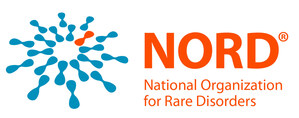Seeking to Protect Infants and Children from Lifelong Neurological Impairment
DANBURY, Conn., Aug. 7, 2013 /PRNewswire-USNewswire/ -- A 14-year-old Connecticut boy has joined the National Organization for Rare Disorders (NORD) in alerting pediatricians and other physicians to a rare medical condition that can leave babies with lifelong disability.
(Photo: http://photos.prnewswire.com/prnh/20130807/DC60396)
(Logo: http://photos.prnewswire.com/prnh/20110719/DC37656LOGO-b)
The boy, Jacob Maren, experienced the rare disorder, which is known as "infantile spasms", in the first year of his life. Prompt diagnosis and treatment helped protect him from any lasting ill effects.
Since the condition frequently goes undiagnosed, Jacob worked with NORD to create an online Physician's Guide to Infantile Spasms written by two medical experts who last year helped the American Academy of Neurology (AAN) update its treatment guidelines for physicians on this condition.
"I wanted to raise money for infantile spasms because I feel I should give back, because everyone did so much to help me, and I want to do my part to make sure that doctors know about the early symptoms of this disease so they can catch it early," says Jacob.
Jacob, who plays guitar, piano and ukelele, raised funds through community concerts and other activities to support building the guide on a website established by NORD last year for physician education (www.nordphysicianguides.org). NORD, a nonprofit patient advocacy organization, created the website to help family physicians, pediatricians and other medical professionals become more aware of rare diseases.
Jacob's mother, author Dani Shapiro, wrote about the family's experience with infantile spasms in her 2007 book, Devotion. His father, filmmaker and journalist Michael Maren, created a video and other online materials to support Jacob's fundraising.
The guide will be available free to physicians all over the world, and NORD and Jacob hope that it will lead to earlier diagnosis for infants whose symptoms might otherwise go unnoticed and untreated.
The physicians who wrote the new physician guide are Cristina Y. Go, MD, and O. Carter Snead III, MD, FAAN, both of the Department of Neurology, Hospital for Sick Children, Toronto, Canada.
Infantile spasms is a seizure disorder that typically first appears during the first year of life. It is characterized by a sudden bending forward of the body with stiffening of the arms and legs.
The spasms may be subtle and appear as small jerks. They tend to occur upon awakening or after feeding, and often come in clusters. Infants may have dozens of clusters or several hundred spasms per day.
While the disorder is sometimes associated with other medical conditions, no cause is ever identified for some affected children. The prognosis varies greatly, but early diagnosis may lead to testing and treatment to reduce the risk of long-term neurological impairment.
Jacob got the idea to promote physician awareness when it was time to come up with a year-long project in the seventh grade at The Washington Montessori School, based on Joseph Campbell's "Hero's Journey." He wanted to do something personal and meaningful. It was also the year of his Bar Mitzvah.
"The meaning of the word mitzvah is to do a good deed in the world, not one that you get credit for, but one that makes a lasting impact," says Jacob. "It seemed to me that raising money for infantile spasms would be a way of taking my own experience and turning it into something that could be helpful for generations after me."
There are 7,000 diseases considered rare in the U.S. affecting approximately 30 million Americans, according to the National Institutes of Health (NIH). More than half of the patients are children, and many go for years without getting an accurate diagnosis.
NORD, which is celebrating its 30th anniversary this year, was established by patient advocates who supported the Orphan Drug Act of 1983. Since then, the organization has sought to improve the lives of all Americans affected by rare diseases through programs of education, advocacy, research and patient/family services.
NORD has more than 200 member organizations, representing patients with specific rare diseases. It also works with many other organizations, including professional medical societies, to promote awareness of rare diseases.
READ THE NORD PHYSICIAN'S GUIDE TO INFANTILE SPASMS
Learn more about NORD at www.rarediseases.org.
SOURCE National Organization for Rare Disorders (NORD)
WANT YOUR COMPANY'S NEWS FEATURED ON PRNEWSWIRE.COM?
Newsrooms &
Influencers
Digital Media
Outlets
Journalists
Opted In




Share this article